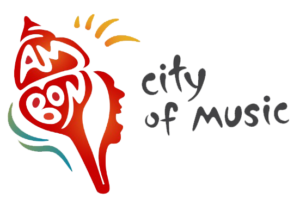Ambon
Indonesia
UNESCO City of Music
since 2019
Music and Ambon City cannot be separated. Music seems to have been the pulse of the movement of a city known as the Ambon Manise because of “musical intuition” which is outwardly embedded in the Ambonese blood and pulse. Then came the expression “Ambonese from the stomach can sing or hum”. Ambonese have DNA Music where DNA is a genetic carrier network in a living organism. This can be proven by the ability: 1) sounds harmony by feeling. Can not be found anywhere in the world harmony can be done automatically; 2) absolute hearing against pitch control or certain frequencies; 3) Timbre (various vocal colors) “.
Music is not only a part of art but music has become an Ambonese culture (a representation of the Moluccas). As an example came a large number of singers from Ambon City who had made Indonesia famous in national and international competitions and dominated the music market at certain times with different timbre. Thus, Ambon music has become a barometer of music in Indonesia.
The second to the music sector, gastronomy is developing particularly intensively in Ambon. Indonesia is famous for its excellent cuisine, thanks to the richness of fruits, vegetables, spices and seafood. For a long time, Ambon, as a port city, was an exporter of spices, such as cloves. The city hosts the Music Art and Food Festival, in which representatives of other cities and regions also take part. The Amboina International Bamboo Music Festival and Conference also features international guests, focusing not only on music but also on the craft of performing on traditional instruments.
Today music is an icon and vehicle for creating interfaith togetherness with its universal strength in penetrating differences. Music becomes a temporary tool of peace and will be used as “added value” and “characteristic of Ambon city” to be juxtaposed with other world music cities

